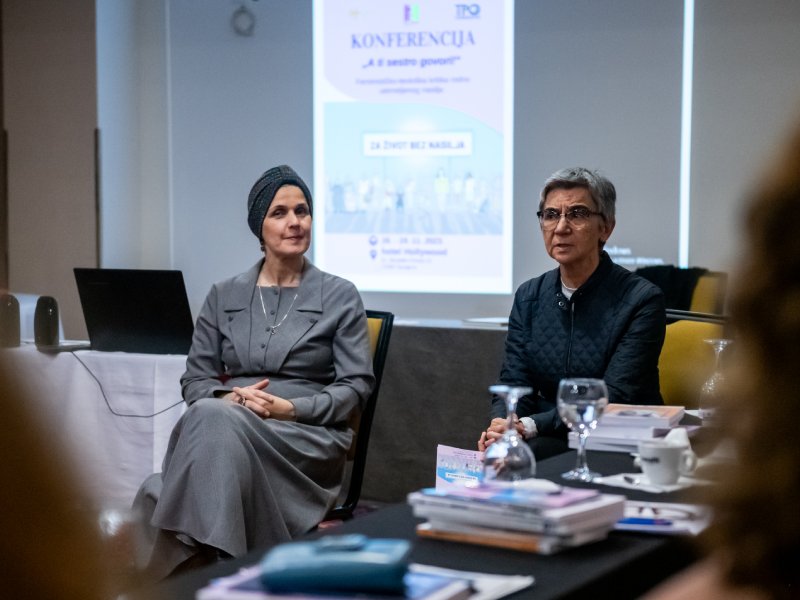The regional FER conference titled “‘YOU SISTER, SPEAK!” took place from November 16-19, 2023, in Sarajevo. Following online meetings across five courses, participants had the opportunity to meet in person. The conference featured discussions with experts in feminism, theology, education, literature, art, acting, journalism, and legal sciences through lectures, panels, and creative workshops.
The conference began with the lecture “The Importance of Art in Women’s Activism,” delivered by Carolyn Boyd Tomasović, director of the Omiš Ecumenical Women’s Initiative. Tomasović emphasized that art serves as ARTiculation—a shaped experience, perception, and understanding of the inner and outer world—and an aesthetic-symbolic means of communicating with various realms, including oneself, others, and God. Despite the historical marginalization of artists, especially women, engaged and activist artistic and visual creativity remains a powerful medium for fostering shifts in consciousness, paradigmatic changes, and inspiring action.
During the panel discussion “Does (In)equality Have a Religion?”, panelists Anja Zalta, Zilka Spahić Šiljak, and Jadranka Rebeka Anić highlighted the importance of the “embodied experience” of faith. They argued for focusing on personal responsibility and immediate experiences of believers, rather than abstract concepts and doctrines. Recognizing the exclusion of women from interpretation, acknowledging discontinuities in sacred texts, and integrating women’s perspectives into contemporary interpretations are crucial.
The panel “Mental and Spiritual Violence” featured Dževada Šuško, Jadranka Rebeka Anić, and Šejla Džanan, who concluded that both the Roman Catholic Church and Islamic institutions have instances of violence perpetrated by religious authorities. These cases often involve power dynamics and control, including sexual, psychological, and spiritual violence. Authorities subtly manipulate victims by exploiting their trust and vulnerability.
The panel “Female Faces of Martyrdom,” with Jasmina Husanović Pehar, Ajla Demiragić, and Amra Pandžo, analyzed narratives about Rabija Al-Adawiya in Sufism and Saint Kumernisa in Christianity. The panelists discussed how the archetypes of saints were formed and the dominant characteristics emphasized in these narratives. In both cases, the denial of femininity in the physical body is noted, with women being given the status of “honorary men” as models of female piety.
In the panel “Conspiracy of Silence and Media Coverage,” panelists Lana Bobić and Ružica Ljubičić addressed the portrayal of women in the media. They emphasized the importance of avoiding sensationalism, stereotyping, justifying, romanticizing violence, victim-blaming, and protecting identities. They advocated for raising awareness, empathy, respect for victims, accuracy, and completeness of information, empowering the public through education, consulting with activists and experts, and avoiding revictimization in media coverage of femicide and gender-based violence.
The art workshop, led by painter Alisa Teletović, showcased therapeutic painting as a means to reveal the unique connection between inner essence and creativity. The diverse and original artworks demonstrated the breadth of human experience, from circles symbolizing continuity to flowers reflecting cheerfulness, growth, and change.
In the panel “Defending the Integrity of Women of Faith as Individuals: The Right to Life, Peace, and Religiosity as a Source of Strength for Women,” Amra Pandžo, Ana Marija Raffai, and Ana Vujković Šakanović concluded that faith provides strength, integrity forms the basis of decisions, and empathy guides women of faith in shaping a world where every moment becomes an opportunity for peace and selfless giving. They emphasized that women of faith, like all individuals, grow and learn through their experiences and can inspire others to work on self-improvement.
In the “Free Movement Experience” workshop, actress Irma Alimanović Alihodžić demonstrated how movement and dance can help women release positive energy, strengthen their bodies, and address accumulated tension and stress. Participants praised God and celebrated their vitality through physical expression, connecting with their spiritual aspects.
During the conference, artist Kasja Jerlagić and journalist Ajša Tunović captured the event through drawings and text. Watercolor illustrations and key messages were showcased in an exhibition on the final day of the conference. Additionally, photographer Imrana Kapetanović documented significant moments, with her photos displayed alongside the drawings and texts.
The panel “Patriarchy in Our Everyday Lives: Don’t Give Us Today,” featuring Jasna Kovačević, Ajša Luković, and Nada Drobnjak, discussed the concept of “woman as the guardian of patriarchy.” They explored how early indoctrination during primary socialization, within families, and secondary socialization through the education system and globalization, perpetuates the patriarchal division of labor and social roles.
Young artist Uma Đurić conducted a workshop titled “Who Killed God in Me?” based on Jerzy Grotowski’s methods. The workshop focused on connecting with one’s own body, integrating emotions, and fostering free expression. Additionally, writer Melida Travančić led a workshop called “Note on a Woman: From the Oppressed to Those Who Change the World,” emphasizing the importance of autofictional works by authors from countries such as Palestine, Iran, Albania, and Bosnia and Herzegovina. These works, which address experienced violence, provide insights into different cultures and customs, raise awareness of violence in various contexts, and highlight its significance.
The entire program of the FER conference is available HERE
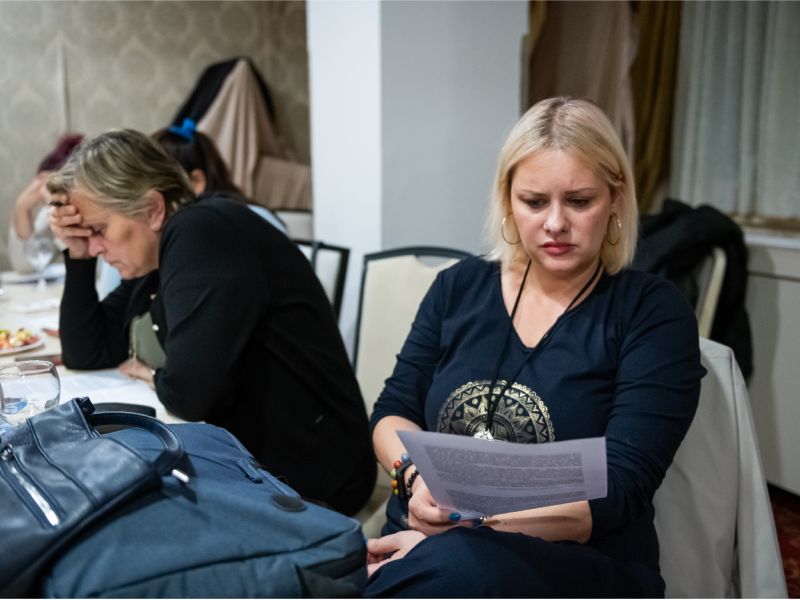
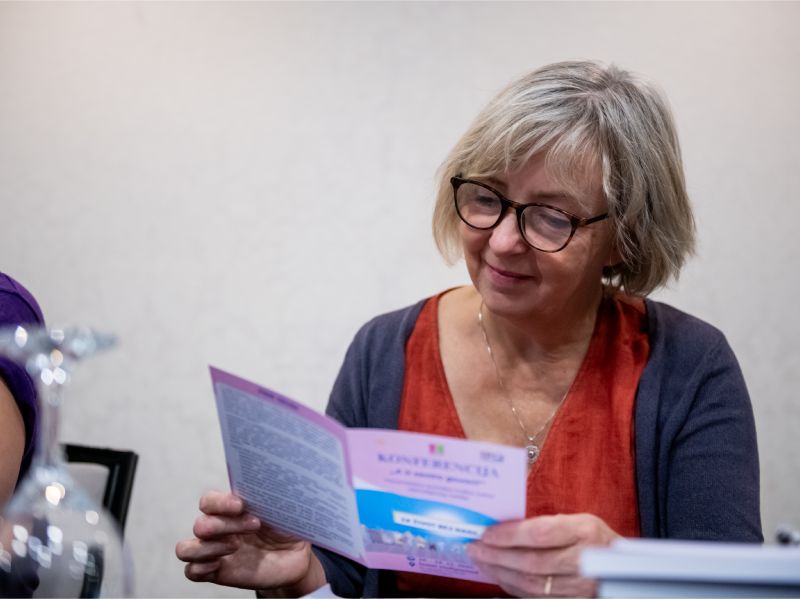
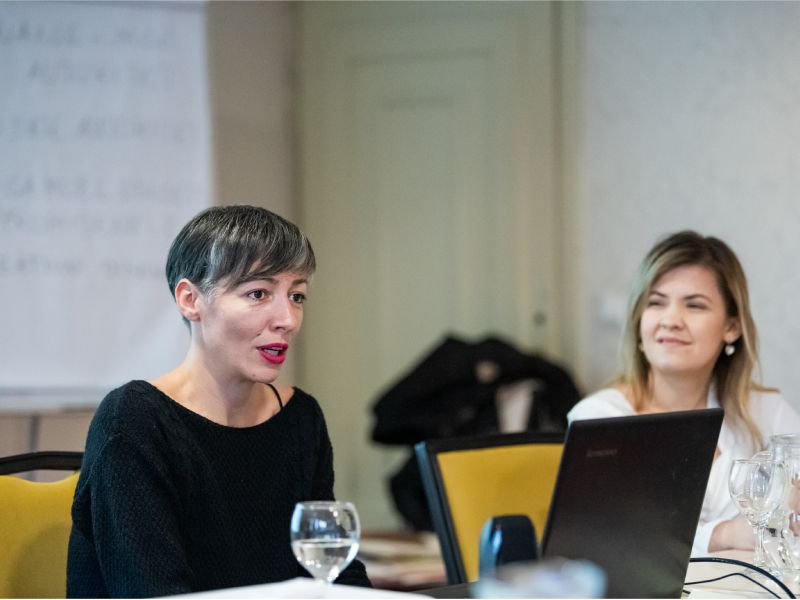
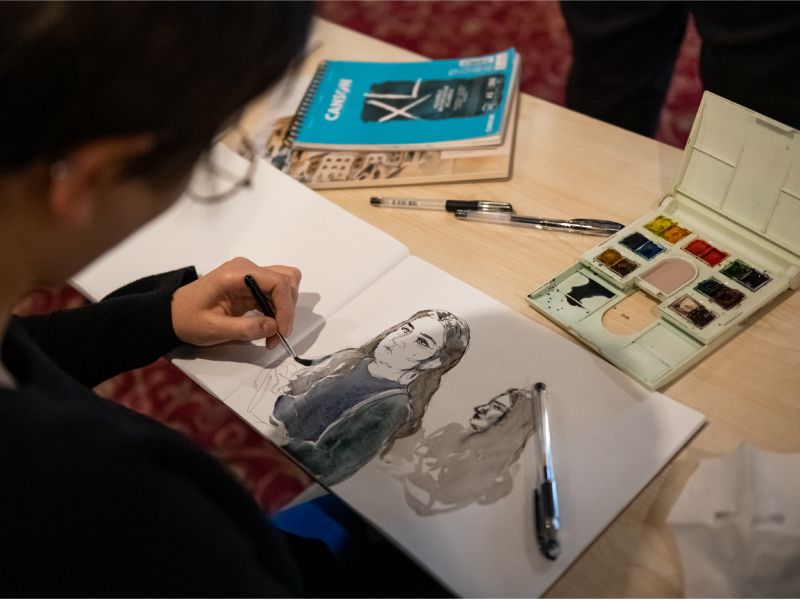
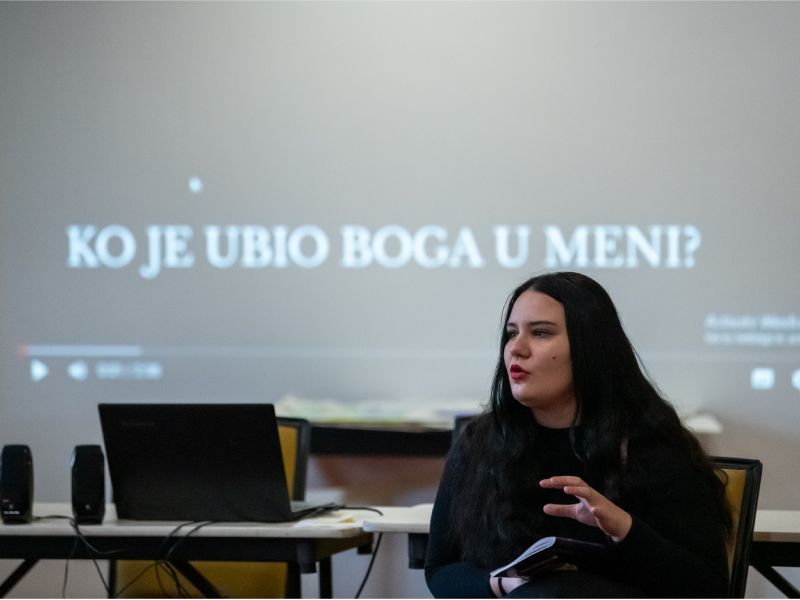
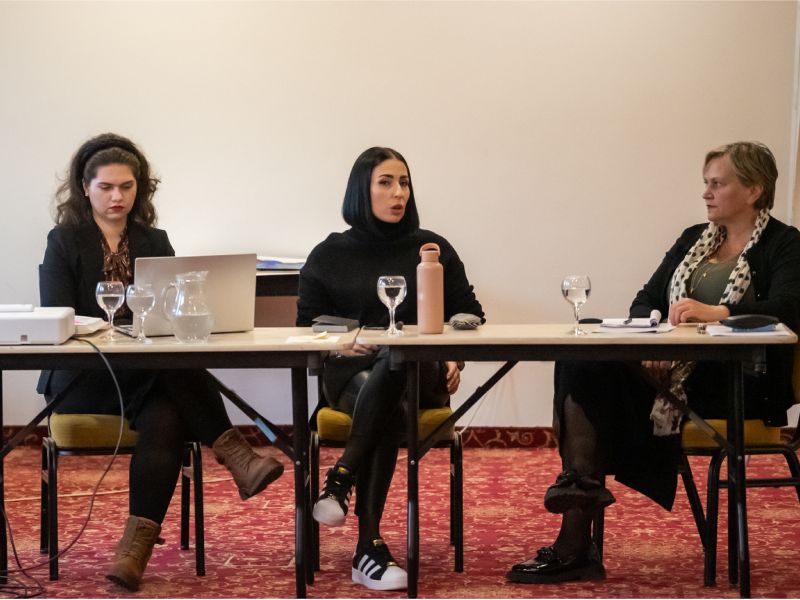
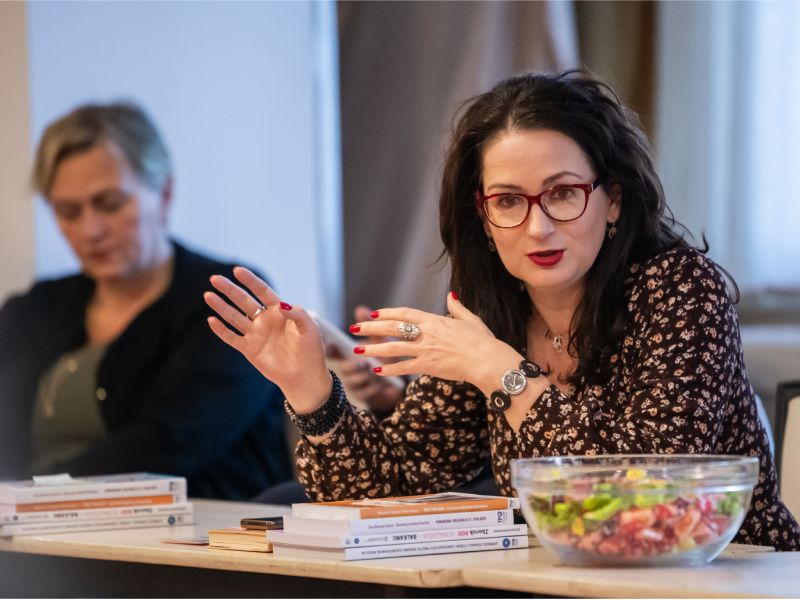
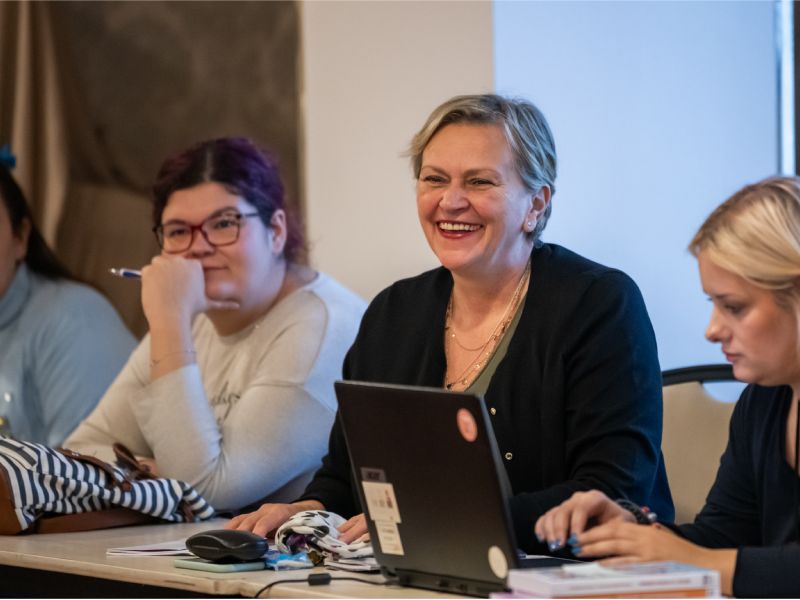
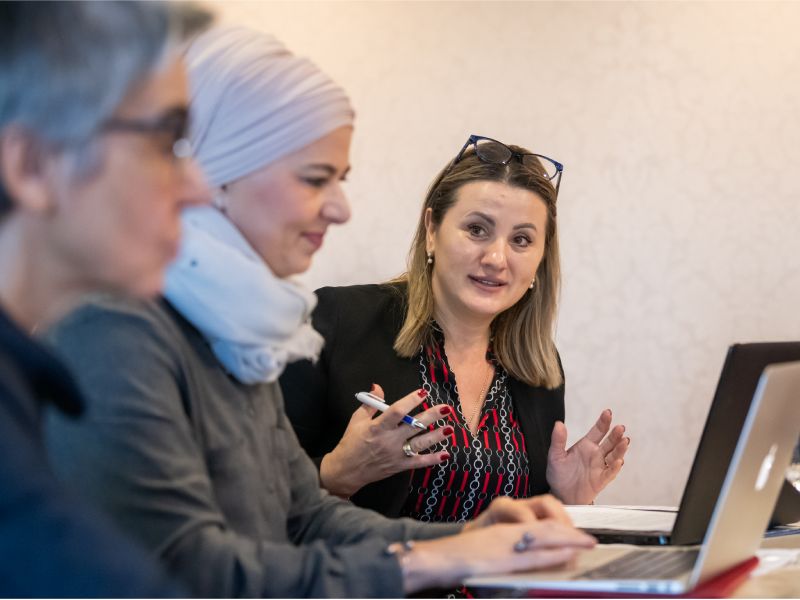
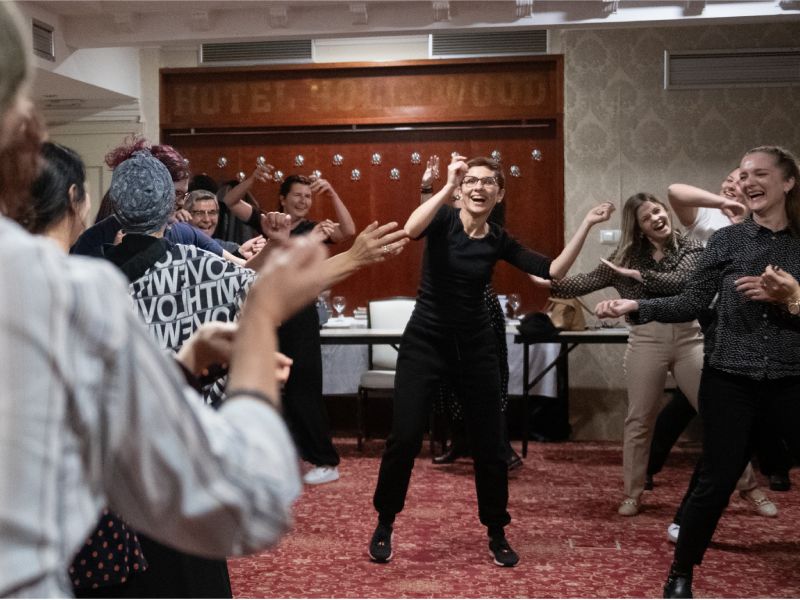
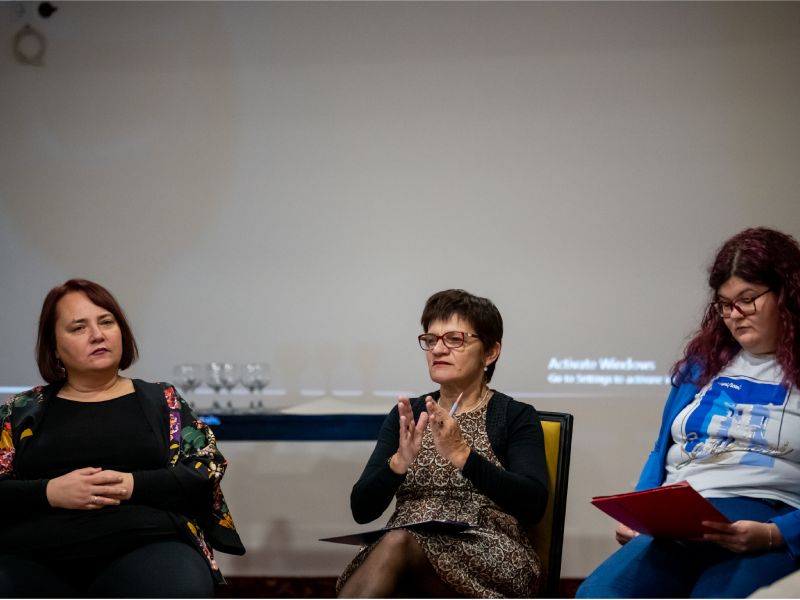
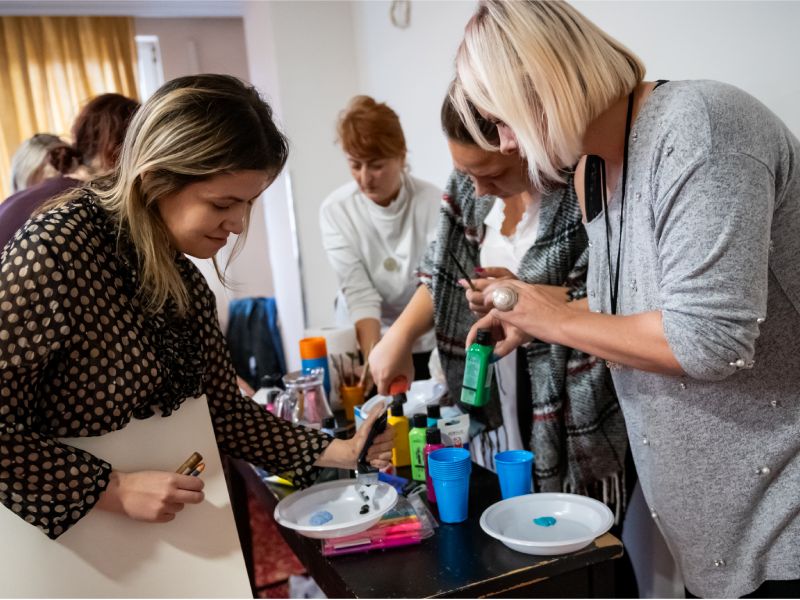
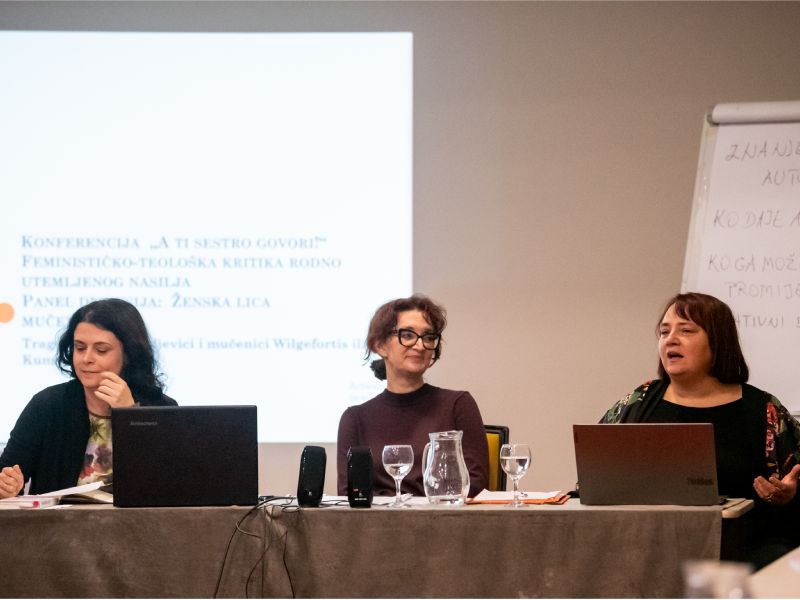
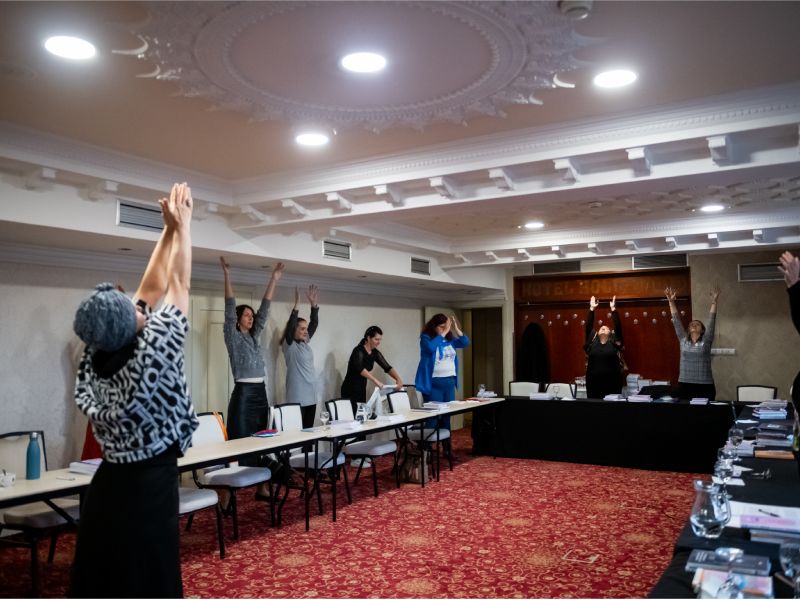
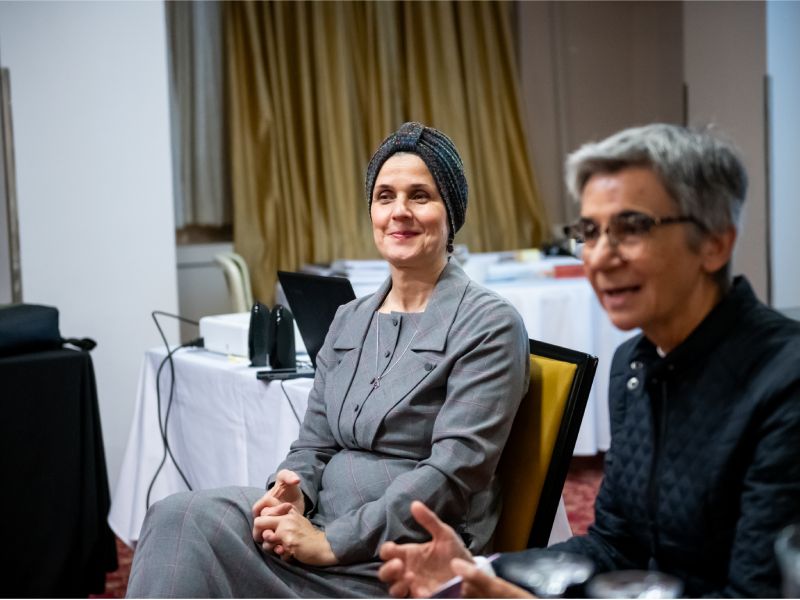
English version of the video

